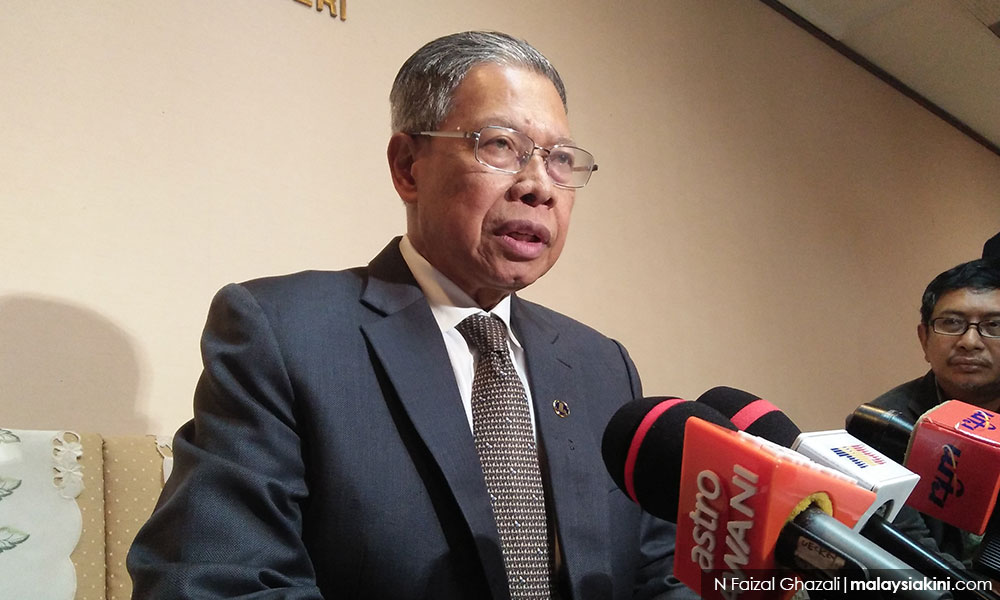As someone who was part of the Malaysian team of officials that worked on the Kuala Lumpur-Singapore High Speed Rail (HSR) project for two years way back in 2015 – 2016, I felt a tinge of sadness when the two prime ministers announced the termination of the HSR Bilateral Agreement on Jan 1, 2021.
However, after listening to the Astro Awani interview with Minister in Prime Minister's Department (Economy) Mustapa Mohamad and also the podcast of the statement by Singapore Transport Minister Ong Ye Kung, I realised that while the 2016 HSR Bilateral Agreement is definitely dead and buried, the same is not necessarily true of the project itself.
In an act of statesmanship, both ministers very explicitly left open the possibility of a direct HSR connection between Kuala Lumpur and Singapore in the future.
When Mustapa said that the southern terminus of our domestic HSR project would remain at Iskandar Puteri, it shows that the Malaysian government recognises that Singapore is land-challenged and since they have identified Jurong East at the available site for HSR, we are willing to accommodate their choice in the future should they decide to connect with us.
When Singapore's transport minister announced in their Parliament that Singapore is willing to consider any new proposal from Malaysia in good faith starting from a clean slate, he is also leaving the door open for a future connection.
Both these statements are equally significant and show a recognition that both countries will gain from having a direct HSR service between the two countries.

If Malaysia also stands to gain, why did we not go forward with the 2016 Bilateral Agreement? After all, Singapore was prepared to go forward. Why did we insist on removing AssetsCo from the project structure?
I do not know for sure, but based on Mustapa's statement, it is clear that our motivation is the financial crisis. Here a bit of background may be helpful.
As the Singapore transport minister mentioned, AssetsCo is responsible for supplying systems (fixed systems such as track, signals and communications, power supply and the trains themselves) and managing the network.
AssetsCo is meant to be appointed by both governments under a 30-year public-private partnership ( PPP) concession. While the cost of the fixed systems per se constitute about 30 percent of the initial capital costs, when we total up the annual PPP payments to be paid to the AssetsCo, they make up a much higher proportion of the total lifecycle costs.
As anyone who has taken a 30-year housing loan knows, when you total up all your loan repayments to the bank, the cost is much more than the house's initial purchase price and that this total, in turn, is crucially dependent on the interest the bank charges.
It is the same with AssetsCo. Since it is a private company, it faces a higher interest rate than if the government were to purchase them. In addition, being a private company it has to add in a risk premium to guard against the possibility of the government being late with its payments, and it also will require a government guarantee since the AssetsCo's lenders will insist on it.
Finally, there is the profit element. Mustapa estimates that eliminating AssetsCo from the project structure will save 30 percent from the overall project. This sounds to be a very reasonable estimate of the savings. If anything, it is on the low side.
Hence I was surprised when Astro Awani interviewed a professor from a university in Singapore, he seemed to cast doubt on Mustapa's statement on the savings to be achieved from eliminating AssetsCo from the project structure. If the good professor knows how to obtain a zero-interest loan, he should share it with the viewers!
If AssetsCo is such a financial burden, why did the Malaysian government agree to it in 2016? Here a bit of trivia about Government budgeting may be helpful.
Recently there has been a lot of public interest in the budget but most glazed over the fact that the budget has two components i.e. the operating expenditure (OE) which traditionally the government finances are wholly from the government revenue and the development expenditure (DE) which the government finances through loans. Annual PPP payments being a recurring payment is considered OE while an outright purchase is considered DE.

In 2016, the government's policy objective in financing the HSR project was to reduce the borrowing element, and a PPP structure like AssetsCo allowed it to do so.
Now, with Covid-19, the priorities naturally have shifted. The stimulus and the support packages that the government has implemented are mainly from OE, which has to be financed from government revenue. At the same time, government revenue has fallen.
Hence I agree that Malaysia has no choice but to reduce the pressure on OE and the AssetsCo structure is no longer tenable. With government borrowing costs being at record lows, outright government purchase of the systems is more attractive than before. So to me, it is clear that Malaysia's decision to ditch AssetsCo is therefore, the financially prudent decision for the current financial situation.
If so, why is Singapore not agreeing to Malaysia's changes? The Singapore transport minister has listed a number of reasons why AssetsCo is considered necessary for the cross-border HSR service.
It is not the purpose of this article to engage in a debate on this issue. Suffice to say that cross-border HSR services are very common between countries in Europe and no cross-border HSR service in Europe has anything equivalent to AssetsCo.
The Singapore minister also stated that the removal of AssetsCo is a fundamental departure from the 2016 Bilateral Agreement. Here, he is undoubtedly correct. This, I believe, is the real reason why Singapore disagreed with the amending the Bilateral Agreement to accommodate Malaysia's decision to remove the AssetsCo.
After all, if the removal of the AssetsCo per se were the reason, the Singapore transport minister would not offer to start negotiations with Malaysia on a clean slate. He already knows that we would not be proposing or agreeing to AssetsCo anymore should we engage in fresh negotiations on a clean slate.
A wholly domestic HSR service may be viable by international standards, but there is no doubt that a direct HSR service between Kuala Lumpur and Singapore will add significantly to the project viability. By any standards the expenditure is huge, and any steps Malaysia takes to further boost project viability is welcome.
Hence, Malaysia should consider submitting our proposals for a new agreement so that both countries can start negotiating a new HSR Agreement that satisfies both countries' concerns. This will make the Kuala Lumpur-Singapore HSR service a reality. Perhaps the KL-Singapore HSR just like love will be better the second time around.
PRODYUT DUTT was part of the Malaysian team of officials involved in the HSR project when he was the chief development officer of SPAD from 2015-2018. He is currently engaged as the Asian Development Bank International Railway advisor for Thailand. - Mkini
The views expressed here are those of the author/contributor and do not necessarily represent the views of MMKtT.



No comments:
Post a Comment
Note: Only a member of this blog may post a comment.